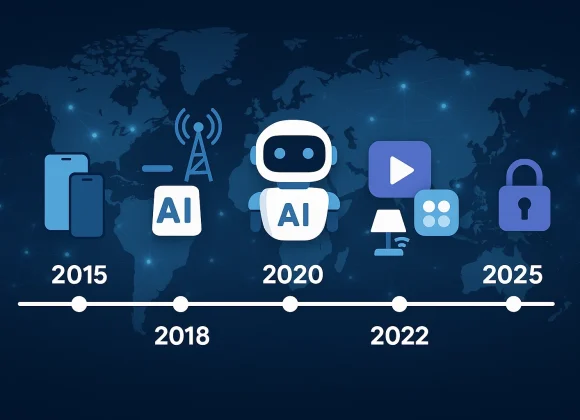Have you ever wondered why your Instagram feed shows certain posts first or why Google always seems to know what you’re searching for—even before you finish typing? The answer lies in algorithms—invisible, complex sets of instructions that decide what you see, when you see it, and even what you might do next.
What Is an Algorithm?
In simple terms, an algorithm is a set of rules or instructions a computer follows to solve a problem or perform a task. Think of it like a digital recipe. Just like a recipe tells you how to make pancakes, an algorithm tells your app how to serve you personalized content.
How Algorithms Work in Search Engines
When you type something into Google, the search engine doesn’t just give you a random list of results. It uses an algorithm to evaluate:
- The relevance of content to your keywords
- Authority of the website (how trustworthy it is)
- Freshness of the content
- Your location and previous searches
All these signals help Google decide which results to show you first. That’s why two people searching the same thing might get different answers.
📌 Example: Search for “pizza near me,” and the algorithm shows results based on your location, reviews, and store hours.
How Social Media Algorithms Decide Your Feed
Ever wonder why you keep seeing the same type of posts or people on platforms like Instagram, TikTok, or YouTube? Social media algorithms prioritize content based on:
- Engagement (likes, comments, shares)
- Watch time or interaction time
- Your activity (what you click or scroll past)
- Trends and hashtags
These platforms want to keep you scrolling, so the algorithm learns your behavior and serves you more of what you seem to like—even if it’s not always what’s best for you.
🎯 Example: Watch two cat videos, and suddenly your feed is full of cats.
Algorithms in E-Commerce and Streaming
- Amazon recommends products based on what you browsed or bought.
- Netflix suggests shows you’re likely to binge based on watch history and genre preferences.
- Spotify creates weekly mixes based on your past listens and similar user behavior.
These are all powered by recommendation algorithms designed to personalize your experience—and encourage you to spend more time (or money).
The Good, the Bad, and the Biased
| ✅ The Good: | ❌ The Bad: |
|---|---|
| Saves time by showing you what’s relevant | Can trap you in an “echo chamber” where you only see one type of opinion |
| Personalizes your content and shopping experience | Might push addictive or harmful content to maximize engagement |
| Makes search and discovery easier | Lacks transparency—you often don’t know why something is shown to you |
⚠️ Bias in Algorithms:
Since algorithms are trained on human-created data, they can inherit biases—for example, favoring certain viewpoints or unintentionally excluding others. That’s why tech companies are working on making algorithms more fair and ethical.
Can You Outsmart the Algorithm?
You can’t fully escape algorithms, but you can guide them. Search for diverse content, clear your history often, use incognito mode, and engage with what truly interests you to shape a smarter, more balanced feed.
Final Thoughts
Algorithms shape more of your online life than you might think—from what you watch, read, and buy to how you feel and what you believe. Understanding how they work helps you use the internet more wisely—and with more control. They’re not magic; they’re math—and knowing that puts the power back in your hands.




